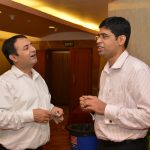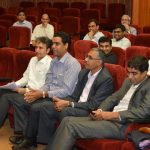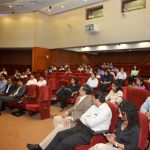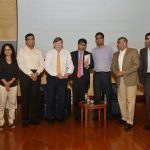- August 3, 2014
- Posted by:
- Category:Advocacy, BLOG, Events, Mumbai, Speaker Events
Contributed by: Chetan Shah, CFA, Director IAIP and Senior Portfolio Manager Religare Invesco AMC
The biggest customers and primary users of financial statements are the investors, lenders, and creditors. Having uniform financial statements across the countries help them analyze & compare the financial health of the corporations to invest or lend. The benefits are visible with increased capital mobility across globe and lower cost of funds for the corporations. Spear heading this initiative is the IFRS Foundation an independent and not-for-profit organization. Its primary mission is to develop a single set of high quality, understandable, enforceable and globally accepted International Financial Reporting Standards (IFRS) based upon clearly articulated principles. IFRS are developed by the International Accounting Standards Board (IASB), the independent standard setting body of the IFRS Foundation. It was a privilege for IAIP to have Ian Mackintosh Vice Chairman IASB and Kumar Dasgupta Technical Director IASB to give an overview about convergence to & adoption of IFRS in various countries, current projects, consultative & transparent process involved in setting standards, industry outreach and education programs. These includes 15 programs with CFA Institute covering three broad areas viz. classification & measurement, impairment and hedging. The session was mostly interactive and well received by the members.
Most of the companies in Brazil, Russia, China, South Africa, and Canada have adopted IFRS. The US wants to strengthen its own GAAP and hence there has been modest success over the last 10 years. SEC may be making an announcement this year allowing voluntary adoption as around 126 foreign companies listed their use IFRS. Companies like IBM and Ford with many overseas subsidiaries have been using these standards. In Japan around 20% of the companies in terms of market capitalization use IFRS. In UK all listed companies have consolidated and standalone statements on IFRS. Australia has all companies adopting IFRS. In India the progress is encouraging though there are issues in foreign currency translation and business combination. Initially all the bigger listed companies should have consolidated statements based on IFRS and later the same could be extended to smaller companies.
The current projects IASB is working on are in the area of insurance contracts which are very diverse and operating leases which are still not reported on the balance sheet thanks to industry’s lobbying efforts. The new standards will enable single regime for measuring insurance contracts & revenues and do away with the distinction between operating and financial leases.
The retail books of the banks do not have to be valued. However, the provision or impairment model has changed significantly following recent financial crisis. The credit cost/loss model has to start building impairment provisions early enough. There are efforts to marry Basel 3 and accounting requirements.
Unlike retail book of a bank, fair value accounting is relevant to tradable financial instruments. While these may result into volatility in earnings the standards are clear as to what part of income or loss goes into income statement or other comprehensive income based on whether those are realized or unrealized. Fair value accounting allows revaluation of fixed assets which goes through the reserves and amortization flowing through income statement.
- CGS
PS: The presentation made during the session could be found on the India page http://www.cfasociety.org/india/Pages/ContinuingEducation-Presentations.aspx. To know more about IFRS you could visit www.ifrs.org.



















[…] IFRS Convergence: The Global Benchmark for Financial Reporting […]